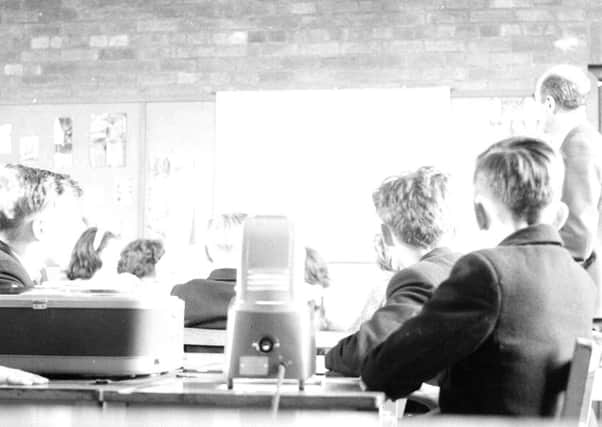Here’s what we should be teaching our children about sex - Cameron Wyllie


This exercise, which followed on after a number of lessons tracing (and I mean ‘tracing’, with tracing paper into our jotters) the journeys of St Paul, took place in the school chapel, where we huddled in the freezing gloom and were told that ‘if any boy laughs, he will be expelled from the chapel’.
There then followed a filmstrip, which, quite genuinely, commenced with a detailed explanation of how reproduction took place in flowers, moved onto insects, birds, larger animals, and then, about three Tuesdays in, reached humans. It was, of course, just about reproduction, because that, after all, was what ‘it’ was for.
Advertisement
Hide AdAdvertisement
Hide AdMy other sources of information about sex were the dirty bits of novels my parents read. I should say, in their defence, they didn’t just read dirty books, but there were a lot of them about in the late 60’s and 70’s. Harold Robbins – anyone remember him?- was particularly graphic (the women were exotic, the men all hugely endowed) but this was print, of course and thus often difficult to picture; I remember puzzling for weeks about the sex scene in a novel about Eskimos which made vague reference to sodomy. My confusion was less about the act and more about the temperatures involved in completing it. Chilly.
Move forward about 30 years and I am, once and once only, teaching sex education. This is, of course, very different to my own experience and begins with an ‘icebreaker’ (nothing to do with these lusty Eskimos) in which the 16-year-olds I am teaching (this was Higher Sex Education – they had already passed National 5…) had to work in groups and write down every name they could think of for the male and female private parts. There then followed a plenary session in which I wrote their suggestions on a huge sheet of paper. I stopped when they had reached 89 words for the penis, because I was almost certain they were kidding. There were, at this point, about 38 that I had never heard before. And that was just for the men.
Now that itself was a long time ago, but I think it’s reasonable to have a think about what it is, in 2019, we can teach our young people about sex, particularly in this age of widespread access to pornography, a subject so large (fnar, matron) that it will need an article to itself. So lay that aside (stop it!) and let me make a few suggestions.
Firstly, all young people need a detailed understanding of what actually happens in sex, to include, for all of them, what men do with women, what men do with men, and what women do with women. And this would include everything that they do. I think this is absolutely essential for most young people, and…reassuring…for them all. I am not going to plunge into the deep and muddy pool of suggesting when this should happen, but I think it’s reasonable that all necessary detail should be in place by the time the age of consent is reached. I think – no matter how many images they may or may not have seen – there is still a considerable misapprehension about much of actual (ie three dimensional) sexual behaviour, in the teenage mind.
Secondly – and my impression is that this is currently done quite well in most schools – there needs to be clear instruction for all young people about contraception, and the various methods employed. This ties in, however, with the key concept of safety, which should also be mandatory. Young people need to know all there is to know about STI’s, about the relationship between drink and drugs and sex, about poppers and chemsex and all the things that can prevent them from making choices about their own behaviour.
And the third central plank is consent, their ownership of their bodies. Obviously, this arena of discussion is unavoidably in front of them – with, quite rightly, a constant stream of coverage of the #metoo movement and the individual cases which have prompted it. At a granular level, though, boys and girls need to know what may – or may not – be acceptable in a park in Cumbernauld or a club in Wick or a back bedroom in Bannockburn, and somebody needs to be brave enough to lead that discussion for them.
Just to be a mite controversial as I veer to a close. I think this needs to be a clear, and well thought through, national curriculum; I think it needs to be established by pupils, teachers and the relevant experts. Apart from the fact that some of these teachers and some of these experts will be parents, I wouldn’t involve parents at all, and I would make it as difficult as possible for parents to remove their children from these lessons. Let’s all just remember our own confused paths towards whatever sex life we’ve had, or are having. It was difficult enough to be a teenager in 1972, when we knew almost nothing; it’s maybe more difficult now in 2019, when (they think) they know more or less everything.
Cameron Wyllie, a retired headteacher, publishes a blog called A House in JoppaJoppa (www.ahouseinjoppa.wordpress.com)